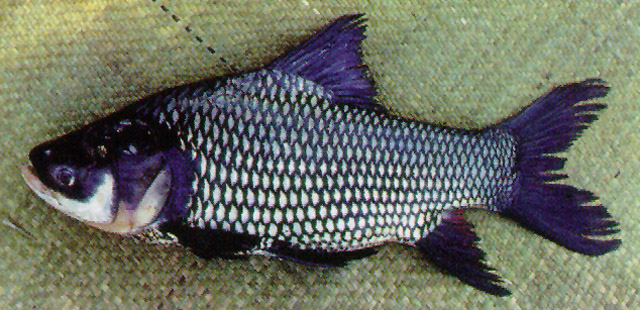| Cyprinidae (Minnows or carps), subfamily: Probarbinae |
| 300 cm TL (male/unsexed); max.weight: 300 kg |
|
benthopelagic; freshwater, potamodromous |
| Asia: Maeklong (Ref. 26336), Mekong and Chao Phraya basins (Ref. 12693). |
|
Dorsal spines (total): 0-0. Head very large, about 2.5 times in SL; no barbels; no dorsal spine; 90-110 long gill rakers on first gill arch (Ref. 43281). |
| Found in large rivers and seasonally in canals and floodplains (Ref. 12693). Adults prefer big pools in the Mekong at least part of the year while juveniles are mostly seen in swamps and small tributaries, from where they are sometimes collected and stocked in ponds (Ref. 37770). The young can acclimatize to live in ponds, canals and swamps. A migratory species (Ref. 37772). Enters flooded forest (Ref. 9497). Young individuals occur in October in the lower Mekong basin (Ref. 12975). Feeds on algae, phytoplankton and fruits of inundated terrestrial plants (Ref. 12693) and detritus (Ref. 58784). Its numbers have declined seriously. Individual fishes rarely survive to reach reproductive maturity. Its catch should be strictly regulated by size. A very desirable food fish, sometimes eaten fresh or pickled (Ref. 12693). Maximum length of 300 cm needs confirmation. Threatened due to over harvesting and habitat loss (Ref. 58490). |
|
Critically Endangered (CR); Date assessed: 05 April 2011 (A2abcd) Ref. (130435)
|
| harmless |
Source and more info: www.fishbase.org. For personal, classroom, and other internal use only. Not for publication.

